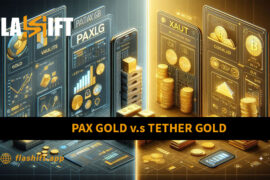Bitcoin (BTC) and Ethereum (ETH) are the two of the fastest-growing cryptocurrencies, and they have significantly aided the development of the industry. Bitcoin was the very first cryptocurrency to be formed and is referred to as digital gold or “gold 2.0,” whereas Ethereum is regarded as a global decentralized system.
These two are completely distinct in that the former was created to enable decentralized money, whilst the latter was created to enable applications and agreements as well.
While Ethereum supports payments using its own internal ETH money, its reach is far greater than Bitcoin’s.
In many aspects, ether and BTC are identical: Each is a digital currency that can be exchanged on internet exchanges and kept in different cryptocurrency wallets.
There are, nevertheless, several important variances. While Bitcoin is meant to be a money and an asset of value, the Ethereum network is intended to support complicated smart contract systems and decentralized applications.
Read more: what is Cryptocurrency?
Bitcoin
Bitcoin was first introduced in January 2009. It presented a revolutionary concept outlined in a white paper by the enigmatic Satoshi Nakamoto—Bitcoin provides the prospect of a digital currency that is safe without the intervention of a central authority, unlike government-issued currencies.
There are no real Bitcoins; instead, there are amounts connected with a cryptographically protected public ledger.
Although Bitcoin was not the first internet money, it was the most profitable during its early days. As a consequence, it has come to be considered as the forefather of nearly all cryptocurrencies that have arisen in the last decade.

Ethereum
Ethereum Blockchain technology has been used to develop functions that go beyond simply allowing digital currencies. Ethereum, which was launched in July 2015, is the biggest and most long-standing flexible decentralized software system.
read more about Top 10 Cryptocurrency Trading Strategies for Beginners in 2024 .
Ethereum allows the creation and deployment of digital contracts and decentralized apps (dApps) without the need for delay, theft, control, or third-party intervention.
To do this, Ethereum includes its own programming system that operates on a blockchain.
Ethereum’s potential uses are many, and they are driven by its native encryption token, ether (also referred to as ETH). Ethereum had an ether auction in 2014, which was met with a resounding success.
Important distinctions
Although both the Bitcoin and Ethereum systems are based on the distributed ledger and cryptography principles, they vary in numerous respects. Operations on the Ethereum network, for instance, may include executable code, whereas data attached to Bitcoin transactions on the network is solely intended for storing transaction metadata. Additional distinctions include block time (an ETH transfer is verified in seconds, but a BTC operation takes minutes), and their consensus techniques: Bitcoin employs SHA-256, but Ethereum employs LMDGhost.
Functions
BTC and ETH serve as digital currencies, but ether’s main focus has nothing to do with establishing itself as a substitute financial system, but rather to simplify and commercialize the operation of smart contracts, dApps, and any other blockchain technology that may be imagined.
Read more: Bitcoin in the next 50 years!
The future
The Ethereum environment is expanding rapidly as a result of the increasing popularity of its dApps in fields such as banking (decentralized financial applications), artworks and collections (non-fungible tokens, or NFTs), video games, and technology. To improve its ability to scale, Ethereum will also implement partitioning sometime around 2023.
Conclusion
Finally, the choice between Bitcoin and Ethereum as a form of investment boils down to an investor’s risk tolerance. Both have the ability to do well in the long run as the world shifts toward digital currencies and cryptocurrency’s acceptability develops. Because Bitcoin is the more recognized and prominent of the two, ETH is slightly riskier.
As with any investments, Ethereum’s increased risk may be accompanied with bigger profits. In any case, it’s no longer 2009: Both currencies have accelerated past the proof-of-concept stage, and it’s time for risk-averse investors who haven’t explored this asset class in the past to reconsider.






